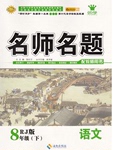题目内容
C ★★★★☆
Following the crowd may not always be in a person's best interest. But new research suggests something different. Scientists have known that close friendships help health. Lonely people are more likely to get sick. That's true for both teens and adults. Those findings inspired Joseph Allen and his team to look at teen behavior.
So they followed 171 teens,starting when the kids were just 13. The same 171 people were interviewed again as adults,at ages 25,26 and 27. Whether teens held in their feelings or expressed them to a close companion also influenced their later health. Those who held in their feelings were more likely to become sick as adults. What’s more,the study found that teens who went along with what their friends wanted,rather than being independent,were also healthier in their twenties.
The (关系) held up even after the scientists took other possible influences on health into consideration. Weight,family income and drug use were all examined. Going along with the crowd may have benefits,says Allen,but there are also weak points. Teens who are more independent are likely to do better in school. And peer ^essure may lead some kids to. do risky thi?gs.
Tara Dumas is ? (心理学家) in London. She says that the study’s findings not only are interesting but alsft emphasize the value of teen friendships. She wants to know what will happen when peers encourage each other to behave in ways that are unhealthy,such as smoking or drinking. She wonders whether those friendships will still lead to healthier adults.
Dealing with peer pressure is a challenge. It is not as simple as just saying ‘no” ” Allen says. “Finding the right balance is the key. Parents need to understand fhe pressures teens face,” he adds.
9. What is the main idea of the text?
A. It's not easy to get along with peers.
B. It's important to deal with teens’ pressure.
C. Adults should pay attention to teens’ health.
D. Teen friendships may make healthier adults.
10. According to Allen,a boy who doesn’t like following the crowd may .
A. do well in school work
B. have an unsuccessful life
C. end up smoking or drinking
D. easily become overweight
11. Tara Dumas seems ?
A. excited to encourage friendships
B. unwilling to let teens make friends
C. doubtful about unlimited friendships
D. happy with what teen friends do together
12. What should parents do according to the text?
A. They should learn to say no to teens.
B. They should think based on teens’ situation.
C. They should encourage teens to be independent.
D. They should make a balance between work and family.
C篇最新研究发现喜欢交朋友、合群的青少年在成年后身体会更健康。
9.D. 主旨大意题。本文主要介绍了一项新的发 现,即合群的青少年成年后更可能有健康的身体。
10.A. 细节理解题。根据第三段中的Teenswho are more independent are likely to do better in school可知,独立的青少年在学习上更容易表 现出色。
11.C. 推理判断题。根据第四段中的She wants to know what will happen when peers encourage each other to behave in ways that are unhealthy,such as smoking or drinking nl 知,Dumas对于没有限度的友谊是持怀疑态度 的。
12.B. 推理判断题。根据最后一段提到的 Parents need to understand the pressures teens face可知,父母们应该理解孩于们面临的压 力。

 优学名师名题系列答案
优学名师名题系列答案